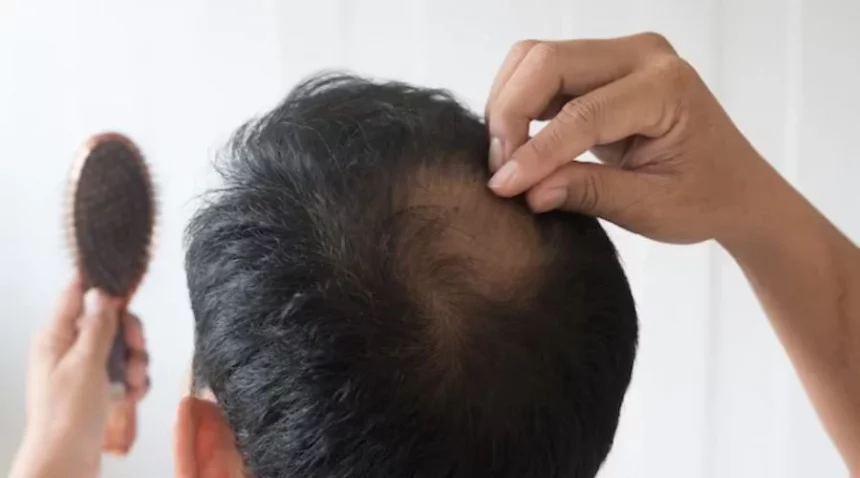Losing hair can be a real blow to your self-confidence, but it’s a common problem that many people face. While some hair loss is normal, excessive shedding can be a sign of an underlying health issue or result from poor hair care practices. Fortunately, there are steps you can take to prevent hair loss and promote healthy hair growth. In this ultimate guide, we’ll share tips and tricks to help you keep your hair looking its best. From diet and exercise to hair care products and treatments, we’ll cover everything you need to know to maintain a full and healthy head of hair. Whether you’re struggling with hair loss or simply want to keep your locks in top condition, this guide is for you. So, let’s dive in and discover the secrets to preventing hair loss and achieving luscious locks!
Causes of Hair Loss
Hair loss can occur due to multiple reasons, including genetics, hormonal changes, and medical conditions. It’s essential to understand the root cause of your hair loss to determine the best course of action. Genetics play a significant role in hair loss, with male pattern baldness being the most common type. Hormonal changes, such as those experienced during menopause or pregnancy, can also cause hair loss. Medical conditions such as alopecia, thyroid issues, and scalp infections can also cause hair loss. Some medications and treatments like chemotherapy can also result in hair loss.
Signs and Symptoms of Hair Loss
Hair loss typically occurs gradually, making it challenging to notice. However, some signs and symptoms can indicate hair loss, including thinning hair, receding hairline, bald spots, and excessive shedding. If you notice any of these symptoms, it’s essential to seek medical attention to determine the underlying cause.
Types of Hair Loss
There are several types of hair loss, including male and female pattern baldness, alopecia areata, telogen effluvium, and anagen effluvium. Male and female pattern baldness is the most common type of hair loss, while alopecia areata is characterized by patchy hair loss. Telogen effluvium occurs when the hair follicles enter a resting phase, causing excessive shedding, while anagen effluvium occurs when the hair falls out during the growing phase.
How to Prevent Hair Loss Naturally
Several natural remedies can help prevent hair loss, including a healthy diet, regular exercise, and stress management. A diet rich in vitamins and minerals, including iron, zinc, and biotin, can help promote healthy hair growth. Regular exercise can improve blood circulation, which is essential for healthy hair growth. Stress can also contribute to hair loss, so it’s essential to practice stress management techniques such as meditation or yoga.
Lifestyle Changes for Preventing Hair Loss
Lifestyle changes such as quitting smoking, reducing alcohol consumption, and getting enough sleep can also help prevent hair loss. Smoking can restrict blood flow to the hair follicles, while excessive alcohol consumption can lead to dehydration, which can affect hair growth. Lack of sleep can also contribute to hair loss, so it’s essential to get enough restful sleep.
Hair Care Tips for Preventing Hair Loss
Proper hair care practices can also help prevent hair loss. It’s essential to avoid harsh chemicals and heat styling tools that can damage the hair. Use a gentle shampoo and conditioner that’s suitable for your hair type and avoid over-washing, which can strip the hair of its natural oils. Regularly massaging the scalp can also improve blood circulation, promoting healthy hair growth.
Medical Treatments for Hair Loss
If natural remedies and lifestyle changes are not effective, medical treatments can help prevent hair loss. Minoxidil and finasteride are two medications that are FDA-approved for hair loss treatment. Minoxidil is a topical solution that is applied to the scalp, while finasteride is a medication that is taken orally. Hair transplant surgery is also an option for those with advanced hair loss.
Hair Loss Prevention Products
Several hair loss prevention products are available over-the-counter, including shampoos, conditioners, and serums. These products typically contain ingredients such as biotin, caffeine, and ketoconazole, which can help promote healthy hair growth. It’s essential to choose products that are suitable for your hair type and address your specific hair loss concerns.
Hair Transplant Surgery
Hair transplant surgery is a more invasive treatment option for those with advanced hair loss. During the procedure, hair follicles are taken from a donor area and transplanted to the balding area. While the procedure can be effective, it’s essential to consider the risks and potential complications before undergoing surgery.
Conclusion and Final Tips for Preventing Hair Loss
Preventing hair loss requires a comprehensive approach that includes natural remedies, lifestyle changes, and medical treatments. It’s essential to understand the root cause of your hair loss and determine the best course of action. Maintaining a healthy diet, regular exercise, and stress management can all help promote healthy hair growth. Proper hair care practices, including avoiding harsh chemicals and heat styling tools, can also prevent hair loss. If natural remedies and lifestyle changes are not effective, medical treatments such as minoxidil, finasteride, or hair transplant surgery may be necessary. By following these tips and tricks, you can prevent hair loss and achieve luscious locks.








